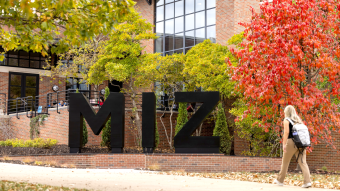Jan. 14 , 2021
Transcript
Kenny Gerling: Last year, surgeons successfully connected a pig kidney to a human recipient. It was headline news around the world and a huge step toward making transplants from pigs to people a reality.
But before the procedure, researchers first needed kidneys that wouldn’t be rejected by the human body. To do that, they used a breakthrough procedure pioneered at the University of Missouri.
In the early 2000s — Randall Prather, a Curators Distinguished Professor at MU and director of the National Swine Resource and Research Center, and his collaborators were able to remove a molecule on the surface of a pig’s cell. Prather said the applications of that discovery were almost endless.
Prather: “To be able to do that then opened up the idea of knocking out other genes for other uses.”
Gerling: Prather’s work continues to make MU a destination for researchers who are trying to improve the health of both animals and humans.
Prather: “Since that time, we’ve made some 90 different genetic modifications in pigs. All of this is to come up with treatments and therapies.”
Gerling: For more on this research, visit showme.missouri.edu.
I’m Kenny Gerling, with a Spotlight on Mizzou.



